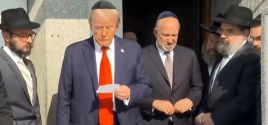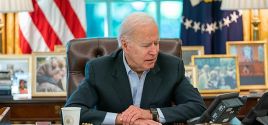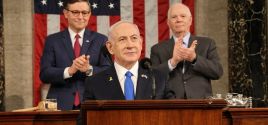The real Manchurian CandidateBy Ben FentonThe Telegraph Nov. 10, 2006 |
Popular 
Chris Rufo Discovers Who is Flooding The Small Town of Charleroi, Pennsylvania With Haitian Migrants

Trump Visits Lubavitcher Rebbe's Grave With Ben Shapiro for October 7th

WATCH: New Film 'Atrocity Inc' Exposes How Israel Lied About October 7th to Justify Genocide

Biden on Netanyahu: "He's a F--king Liar"

U.S. Spends Record $23 Billion On Israel Since Oct 7
 The colonel who commanded one of the Army's most famous feats of arms was a real-life Manchurian Candidate, brainwashed by communists to return home and create confusion in Britain. Lt Col James Power "Fred" Carne, the commander of the 1st Bn Gloucestershire Regt (the Glorious Glosters) at the battle of Imjin, Korea, in April 1951, fell into Chinese captivity after his 700-man battalion's astonishing resistance against an estimated 11,000 attackers was finally overcome. Lt Col Carne won the VC for his role at Imjin. As the senior British officer among hundreds of prisoners kept in appalling conditions in camps in communist-held Korea, he was singled out for special treatment. While the other ranks were "re-educated" by the communist commissars at their camps, Lt Col Carne was kept in solitary confinement and subjected to treatment later to be fictionalised in two film versions of The Manchurian Candidate, one starring Frank Sinatra and the remake with Denzil Washington. John Frankenheimer, the director of the 1962 version, said at the time that none of the brainwashing inflicted on American troops in Korea approached what had been portrayed in his film. In his version a GI is programmed by his communist captors to return home as an assassin. Lt Col Carne was programmed by Chinese commissars, but not with such a violent end in sight. advertisementAccording to documents just released at the National Archives in Kew, Lt Col Carne was released in September 1953 after two and half years' imprisonment and told Sir Esler Dening, the British ambassador in Tokyo, "an extraordinary story". "He says that between January 1952 and August this year he was kept in solitary confinement by Chinese communists and subjected to a softening-up process including the use of drugs, [the] result of which was, as he put it, to make his brain like a sponge, capable of receiving any kind of information put into it," Sir Esler told the Foreign Office in a "top secret" category telegram. The note, which was sent straight to Sir Winston Churchill, in his second term as Prime Minister, went on: "In March of this year, (i.e. about the time when the communists displayed a new interest in concluding an armistice) various thoughts were put in to his mind, and he remains convinced that he was meant to retain these and pass them on to Her Majesty's Government." The thoughts comprised a peace deal not just to end the conflict in Korea, but to reach a settlement covering the whole Pacific region. The offers Lt Col Carne believed had been implanted in his mind included ending Chinese support for the insurgency in what was then Malaya, an automatic renewal of the lease on Hong Kong when it expired in 1997, and a grant of a "mandate" or right to rule "Formosa", modern Taiwan. In return, the Chinese seemed to want Britain, and not America, to be responsible for the reconstruction of Korea and for peacekeeping in the demilitarised zone and for British rather than US ships to rule the waves in the Far East. Sir Esler opined: "The whole thing might be pure fantasy except for the fact that Col Carne could hardly have invented it and does not strike one as that sort of person." The Foreign Office was sceptical about the plot, but suggested that perhaps its aim was to split Britain from its American ally. Lt Col Carne died in 1985. Twenty of the 93 Glosters killed in Korea perished in captivity. But their colonel seems to have been the only one who was subjected to drug treatment. |



